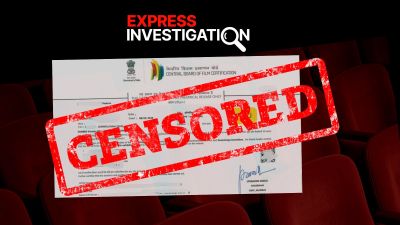India in French multipolarity
The French find it distasteful to accept the dominance of a single superpower over world affairs. America's unilateral muscle-flexing over s...

The French find it distasteful to accept the dominance of a single superpower over world affairs. America’s unilateral muscle-flexing over sanctions against Iraq, the trade embargo against Cuba, and the economic blockade against Iran are instances where Paris strongly feels that American whims should not be transformed into universal prescriptions for the world.
The fear of the French, driven home by American aggressiveness in promoting its commercial interests, is that without any counterweight, the US is tempted to indulge in unilateralism and establishing its hegemony.
Enter France, with a new grand plan: a "multipolar" world where some key players, namely France, Russia, Japan, China and India, emerge as separate "poles of global influence and balance".
In the past year, the French have buckled down to the task of assiduously wooing the new global players. French President Jacques Chirac’s mission to China in May underscored Beijing’s responsibilities towards global security even as China integratesitself into the world economy.
Where does India figure in all this? France sees India as one of the crucial "poles of influence" in the multipolar world. In some respects, the French feel India holds even greater potential than China. In Paris, the need for a quick turnaround in bilateral ties was echoed not just at the Quai d’Orsay headquarters of the French foreign ministry but even more vehemently by the business community.
For a number of French multinational firms, there is an overwhelming realisation that disruption of the official economic dialogue following France’s decision to sell the Mirage 2000-5 to Pakistan may have cost them dearly, excluding them from among the ranks of Western and Japanese MNC frontrunners who were early investors as the Indian economy opened up.
But the incipient beginnings of a disenchantment with China, coupled with the turmoil in South East Asian markets, have pushed India into the front ranks as a business destination. Indeed, some of the French infrastructure majors are so gung-ho about India they insist that political ups and downs are incidental.
While many in India question the wisdom of Chirac, and the high-profile delegation accompanying him, visiting India with only a caretaker government at the helm, the French point to it as evidence of their long-term vision for firming up ties with a player in the multipolar world.
In recent interviews, Foreign Minister Hubert Vedrine has ruled out a blind acceptance of the U S position. Washington is a "friend and ally", but there can be no automatic endorsement of US foreign policy objectives. This translates to a French rejection of Washington’s hardline on Iraq or Iran, especially when it hurts French economic interests. Witness recent American attempts at arm-twisting France into "persuading" its oil major Total from striking a two billion dollar oil deal with Iran. Overriding American objections, Paris gave the go-ahead and the deal went through.
The French stand is unambiguous: if the US has domestic laws like the D’Amato-Kennedy and Helms-Burton Acts which prohibit trade with the "rogue" states, they can only apply to American citizens and American territory. France shares the West’s concerns on terrorism and nuclear proliferation, but opposes unilateral slapping of embargos. Instead Paris advocates a pragmatic engagement.
While Washington never tires of lecturing India on the virtues of nuclear abstinence, Paris may be prepared to make a more "realistic" assessment of India’s atomic compulsions. Paris appears more eager than Washington to engage New Delhi in a pragmatic nuclear dialogue, leading to formalisation of some restraints on India’s nuclear weapon posture in return for French technology in building nuclear power plants. France stands to gain from such a nuclear deal. So may India.
The billion franc question is whether Chirac will show the gumption to step out of the American line on non-proliferation and open the door for a nuclear accommodation with India. The French talk about "multipolarity" is all fine. But for South Block and the Department of Atomic Energy the proof of the pudding is in the eating.



- 01
- 02
- 03
- 04
- 05




























